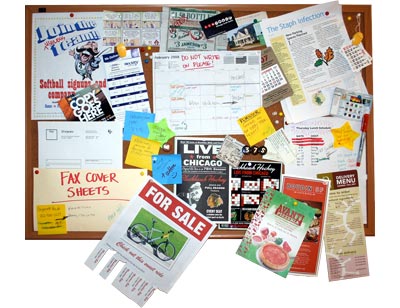Posts
Cooking with an English recipe
Remembering New Vocabulary
Here is a really excellent blog on language acquisition. This post makes some very useful suggestions about how to remember new vocabulary…..it’s all about context!!!! Have a look at this: http://www.lingholic.com/how-to-remember-words-when-learning-a-language/
Skype: Bringing the world closer
Summer is upon us and people are going on holiday! What a brilliant way to learn some travel English. The wonderful thing about skype is that you can learn about other cultures. I've never met a Russian person. I recently started lessons with a Russian girl who is so interesting and our lessons are never long enough! We have so many things to talk about. I really like teaching on skype! Never in my wildest dreams did I think I'd be having a conversation in the morning with a Russian and then in the afternoon with an Italian! The world is so much smaller now! Being able to speak to and understand other cultures is surely the way to bring peace and understanding to the world! (one can dream!)
Using Pinterest to improve your English
I have been ‘pinning’ for a few years now and thought it was really a great way to waste time… until now. Thanks to ESL Hip Hop, I have now found an actual use for Pinterest.
Most people use Pinterest to ‘pin’ (share) recipes, pictures of their dream house, internet memes, and basically anything you can think of. It is a virtual pin-board for you to organize into categories as you wish.  I am a victim of the food boards, the vacation dream spot boards and drifting off into the land of make-believe as I pin away. The other day something on twitter caught my eye. ESL Hip Hop posted about a Pinterest picture dictionary. EUREKA! What a great idea! He has a ‘board’ dedicated to vocabulary from a particular song.
I am a victim of the food boards, the vacation dream spot boards and drifting off into the land of make-believe as I pin away. The other day something on twitter caught my eye. ESL Hip Hop posted about a Pinterest picture dictionary. EUREKA! What a great idea! He has a ‘board’ dedicated to vocabulary from a particular song.
I am a very visual person, so seeing the picture in real life context really hits home with me. Let’s face it, we’ve all had enough of the lame illustrated furniture vocabulary in books written in 1972.
hit home – refer to or be relevant or familiar to; “I hope this message hits home!”
What should you do about this? Sign up to Pinterest and follow my boards and ‘pin’ words that you do not know to your own boards and study them daily. Once you feel that you know a word, you can move it to a different board. You can name it ‘Words I Know’ and only glance at that one once in awhile. As I mentioned earlier, it is a great way to waste time– BUT, if you are browsing around and reading the captions in English, you are learning at the same time!
[googlefont font=”Chewy” size=”50px” margin=”10px 0 20px 0″]http://pinterest.com/skypenglish4u[/googlefont]
I would love to hear what you think about this method of learning vocabulary. Leave me a comment below!
Frequently Confused Words #2 Make or Do?
Another difficult area, for many non native speakers, is working out when to use make or do. The problem is that they have very similar meanings, but they do have very different uses.
Do is used when we are talking about general and daily activities and when no physical object is produced.
What are you doing? I’m doing the housework.
I really hate doing the ironing.
I wish I didn’t have to do it.
Examples: Do the washing up
Do my homework
Do our jobs
We also often use do with, nothing, everything, anything, something.
It’s my day off tomorrow, would you like to do something?
Does anything really matter?
I’ve done everything you asked me to do
Make, on the other hand, is very often used when we are talking about creating, building or constructing something that we can actually touch or see.
I am making breakfast/lunch/supper
He made a really beautiful box in his woodwork class
My grandmother used to make her own clothes.
Do and make are also used with a large number of set expressions, (collocations) the problem is (rather like a lot of things in English!!!) there are no rules to help you decide and so these just have to be learnt.
Follow this link to see a list of set expressions and to try out some exercises.
Common Phrases
Student: I realize I should learn by heart a set of template common phrases for everyday situations. So I can build my arguments or story around them, use them. Maybe that way to speed my speech flow.
Teacher: It is a good idea to be comfortable using common phrases. I would not recommend just memorizing them. You need to be able to use them on the spot, in any random conversation. Play around with these useful expressions.
I believe that learning phrases is more effective than just single vocabulary words. So many words can be used differently – especially when dealing with prepositions and everyone’s favorite, phrasal verbs! Just going over that list (or any other list of common phrases) will make you aware of them and you will notice them when you are watching TV shows or reading articles (everyday!)
on the spot: immediately
One Direction
Pronunciation
British: One Dye-rection
American: One Der-ection
Australian: One Da-rection
Chinese: Wan Da-re-shun
Irish: Wonder-Action
I don’t know where to start for a job interview
Student: I don’t know where to start for a job interview in America because the system I use is only Russian.
Teacher: Get comfortable with the terms in English so you can easily explain what you do in English. This is going to require a lot of reading, both about the system itself (in this case: 1C: Enterprise 8 ) and then general IT interview questions.
Interviews require a lot of research. You need to know exactly what they are looking for and explain how you fit their needs. You also need to know about the company and their practices. In the IT industry the required skill set may be the same, but how the companies operate vary from one to the next. You need to find out how they operate and make sure that your answers fit with how they do things.
http://voxy.com/proven-approach/
It takes a long time to learn a language if you only study once a week. With regular practice, even in small amounts, your skills will remain sharp and you will h ave frequent opportunities to improve.
I’ve been saying that for years! … just in different words 😉 I found this quote when I was reading about Voxy (http://voxy.com/proven-approach/)
People often ask me, “How long will it take to improve my English?” I respond with the same answer every time, “That depends on YOU and how much time you are willing to put into it.” I have spent thousands of hours speaking with people on Skype and I have worked with all levels of learners. I have had students who use websites for grammar, listen to podcasts, watch youtube, and even practice with facebook and twitter. And others who think that speaking to a native speaker once a week is going to be the key to their English success, but don’t have time for those other things. Who do you think excels faster?
excel: Be exceptionally good at or proficient in an activity or subject
YOU NEED TO PRACTICE EVERYDAY -even just a little tiny bit! Get your brain thinking in English at least once a day.
- read the English version of your local news
- make your homepage a site that you like to use to practice your English, so everyday it is IN YOUR FACE
- need to know something? Google it in English
- follow blogs (in English) that interest you
- facebook – twitter – pinterest – reddit
- find a site that you like that has daily grammar activities and exercises… give your brain a work-out (just reading isn’t enough)
- find a radio station (in an English speaking country) you like and stream it online
- watch TV series and movies
- write a ‘phrase a day’ on a post-it and stick it where you will see it
HELP ME ADD TO THIS LIST! What do you do to improve your English everyday?
